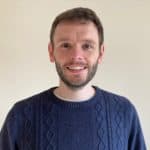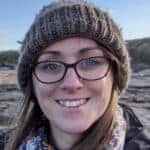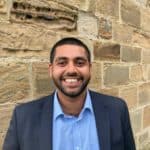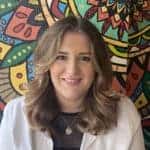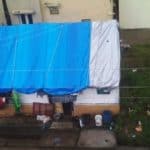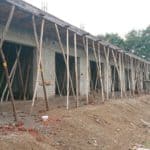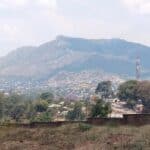Profile
George Foden
-
About Me:
I live in Nottingham, and spend my weekends getting lost in the woods. I am a trustee of a charity that supports children’s education in rural India, and I love travelling, surfing, dogs, rock climbing, reading, and podcasts (not necessarily in that order)!
-
Read more
I enjoy surfing and paddle boarding, so I try to do that as much as possible when I’m by the sea. I learned to surf in Devon, but when the waves allow it I also sometimes surf around Brighton Marina. I also love rock climbing, but I’m not very good at it.
My dream life would be spent visiting as many different places as I possibly could, and I’ve spent most of my education and working life trying to find different ways to make that happen. I’m making slow progress, but I’ve been lucky to visit lots of interesting places, and hopefully there’s a lot more to come.
-
My pronouns are:
He / Him
-
How I use Science in my work:
I am an academic researcher who works very closely with non-government organisations (NGOs) and charities to help them to improve their programmes in humanitarian and development contexts globally. I take key scientific research, particularly around sustainability, housing construction engineering, and psychology or human geography, and help to translate that into practice.
-
My Work:
I am a post-doctoral researcher studying the links between humanitarian interventions and long-term community resilience.
-
Read more
I am an academic visitor and postdoctoral researcher at Nottingham university, working on different research projects focused on climate change and community social connectedness, in addition to being responsible for the QSAND shelter and settlement sustainability framework.
My doctoral research was titled “Sustainable Housing as a Contributor to Community Resilience”, and I am looked into how different housing types influence relationships between people living in different communities, particularly in post-disaster contexts. This research emerged from my role as the programme manager of the QSAND sustainability framework, a decision-making support tool that was developed to help humanitarian shelter and settlement actors to consider the long-term sustainability of their shelter projects in the aftermath of disasters.
When you have to rebuild your home after a disaster, there are many different things to consider. Even for the experts in the humanitarian shelter sector, who are used to working in difficult contexts with limited time and resources, making appropriate decisions in terms of how shelter and housing should be rebuilt can be very difficult. QSAND aims to help make those decisions easier, whilst supporting communities to continue to develop and be sustainable over the long-term. For my research, I explored how different housing approaches influence the relationships between different groups in an affected population, and help to make sure that housing reconstruction and recovery also supports strong community ties and friendships between neighbours, rather than inadvertently cause conflict or tensions between people.
-
My Typical Day:
I usually start my day by responding to emails requesting support with QSAND. Then I read some relevant research papers to help with my fieldwork, and prepare for my research by writing proposals and connecting with colleagues. Because a lot of the people I work with are in different countries, I sometimes have meetings outside of normal working hours. When I get the chance to visit field sites, as I did in Malawi for my PhD research, and will in Kenya for my current research projects, my days get more interesting!
-
Read more
As a doctoral researcher, my first year was very focused on reading lots of relevant literature to help me to understand the scientific justification for my research. This means that a lot of my time was spent reading other people’s work and looking at how they conducted their studies. I also have to keep an eye on more up-to-date news related to my research study area, which is in Malawi, in southern Africa.
A big part of being able to do research in the field is having connections to people who are working in communities, and particularly those working in shelter and housing contexts. I therefore speak quite regularly with humanitarian shelter practitioners and academic researchers who are working or who have worked in the areas where I am hoping to visit. This means I have a good network of people who will be able to help me when I’m in the field.
When I visited Malawi for my field research, I first conducted a QSAND assessment of the housing contexts. In the region I visited, there is regular annual flooding that damages houses during the monsoon season, and occasional cyclones that can destroy some vulnerable buildings. I therefore studied how communities have adapted and rebuilt after these events, and also spoke with people about their recovery process to understand what worked well and what could have been done better.
Now as a postdoctoral researcher, I am building on these findings by publishing academic papers and giving research talks with academics and practitioners in Malawi and the UK.
-
What I'd do with the prize money:
Following my participation in I’m a Scientist two years ago, I used my prize money to conduct a workshop with the Malawi Shelter Cluster on humanitarian housing construction and sustainability (https://about.imascientist.org.uk/2023/what-george-foden-did-with-his-prize-money/).
If I were to win this year, I would like to incorporate more of my research findings into more workshops in my new role with Nottingham University, engaging other researchers to run a series of seminars / webinars on the topics of climate change, disasters, and human development.
-
Education:
I started school at Claines Primary School in Worcester, before we moved back to the south coast before starting secondary school. I went to high school at St Andrew’s High School for Boys, until I was 16.
BHASVIC was the sixth form college I went to, and this was where I first got really interested in psychology during my A-levels, which eventually led me to choosing my degree at the University of Sussex in Psychology with American Studies. After my undergraduate degree, I completed a master’s in Conflict, Security, and Development, at Sussex.
-
Qualifications:
GCSEs
A-levels in Psychology, Sociology, and History
Law As level, and an Extended Project
BSc Psychology with American Studies, University of Sussex
MA Conflict, Security, and Development, University of Sussex
PhD in Geography and Environment, Loughborough University
-
Work History:
Loughborough University: Research Assistant (October 2021 – September 2025). Working on multiple projects with the Modern Energy Cooking Services and Climate Compatible Growth programmes in the Centre for Sustainable Transitions: Energy, Environment, and Resilience.
PhD Researcher – Geography & Environment – Thesis title: Sustainable Housing as a Contributor to Community Resilience .
The Building Research Establishment (BRE) Trust: Humanitarian Programme Lead (February 2020 – July 2021). QSAND Support Officer (February 2018 – February 2020). I was responsible for developing the humanitarian programme and managing partnerships with organisations involved in post-disaster reconstruction. I also helped the development and maintenance of the QSAND sustainability tool.
The Post-Conflict Research Center: Associate (June 2018 – Present). Research intern (September 2017 – December 2017). My duties included writing articles for the PCRC blog and their partner website Balkan Diskurs, and other social outreach activities in the Balkans. I was co-author of a report on media freedom in BiH and supported the organisation of the 2018 WARM Festival that brought war journalists, artists, and activists together in Sarajevo in June of 2018.
The Kanji Project: Trustee Brighton (March 2017 – Present). As one of six trustees for The Kanji Project I am responsible for raising awareness of the charity and helping with fundraising events, in addition to helping improve the quality of programmes in both the UK and India.
Shepherd Neame: Bar and Restaurant Supervisor Brighton (June 2015 – May 2018) – Before this I worked as a shift supervisor at a busy pub whilst undertaking my undergraduate and master’s degrees, and working here gave me some good experience in conflict resolution that came in very handy in my later roles!
-
Current Job:
Nottingham University: Research Fellow in Quantitative Social Sciences (October 2025 – Present). Supporting the ‘Ending Forced Child Begging in Niger’ Project, led by the Rights Lab.
Research Fellow in Energy for Sustainable Development in Vulnerable Communities (November 2025 – Present). Supporting the African Sustainable Community Energy Networks project, researching energy access and livelihood development in Kenya.
QSAND Programme Lead – I also am responsible for maintaining the QSAND shelter framework at Loughborough University, and supporting its use by humanitarian organisations engaged in shelter response. I have supported projects in Nepal, the Philippines, Myanmar, China, and Tunisia.
-
Employer:
Nottingham University
Loughborough University
-
My Interview
-
What did you want to be after you left school?
I wanted to work in the humanitarian sector as an aid worker
Were you ever in trouble at school?
Not really, I enjoyed most lessons but would sometimes get told off for not paying attention in classes I didn't like (like maths)
If you weren't doing this job, what would you choose instead?
I think I'd like to be a journalist or author, something where I could do lots of research on different topics
Who is your favourite singer or band?
I love pop-punk music, and Blink 182 is one of my favourite bands
What's your favourite food?
Anything with pasta
If you had 3 wishes for yourself what would they be? - be honest!
To be able to visit every country in the world, to be able to speak every language fluently, and to be a much better surfer!
Tell us a joke.
What do you call a blind dinosaur? Do-you-think-he-saurus
-

